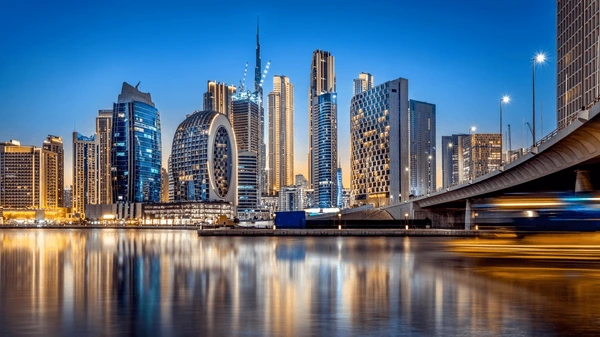Rental yields reach 6–8% compared to 2–4% in London and New York
Dubai’s real estate sector, renowned for its global appeal, continues to demonstrate remarkable growth in the first half of 2025, supported by stable returns, strong investor confidence, and a rising reliance on data-driven decision-making. According to Bayut, investors seeking long-term value are increasingly drawn to residential communities that not only deliver strong yields across asset classes but also promise sustainable growth opportunities.
When benchmarked against major global cities, Dubai retains a striking competitive edge. While markets such as London, New York, and Singapore typically record gross rental yields of only 2–4%, often weighed down by heavy taxes and capital costs, Dubai offers average yields ranging between 6% and 8%. On top of that, investors enjoy the benefits of zero property tax, zero capital gains tax, and full freehold ownership in prime locations—advantages that further enhance Dubai’s global positioning.
This investor-friendly environment is evident across market segments. Affordable apartments are delivering yields of more than 11%, while mid-range neighborhoods also report consistently strong returns. Even the luxury property sector, which usually records moderate yields due to higher purchase costs, continues to perform well with gross returns of around 5.9%. Together, these trends reinforce Dubai’s status as one of the most diverse and attractive real estate markets worldwide.
The strength of the affordable housing segment in particular lies in high occupancy rates, continuous tenant demand, and competitive pricing that attracts both new investors and established portfolio holders. Similarly, the villa market has shown resilience, with communities generating yields above 5.85% thanks to ongoing infrastructure improvements, competitive pricing, and the expansion of community services and amenities that boost long-term appeal. Mid-market communities are also thriving, recording yields between 7% and 10%, striking a balance between quality living and strong investment potential. These neighborhoods are increasingly favored by families seeking added value compared to central districts, supported by thoughtful urban planning, accessibility to major transport networks, and a growing demand for family-oriented communities.
Even in the high-end luxury sector, investor interest remains strong, driven not only by steady rental performance but also by the potential for capital appreciation, premium infrastructure, and the lifestyle appeal that Dubai continues to offer. This reflects a broader shift in investor behavior, where decisions are no longer based solely on immediate yields but are guided by a wider range of indicators, including long-term capital growth prospects, tenant demographics, infrastructure development, and the maturity of residential communities.
As Haider Ali Khan, CEO of Bayut and CEO of Dubizzle Group for MENA, explained, Dubai has moved beyond being a regional competitor to establish itself as a prominent global player in real estate investment. Its uniqueness lies in the ability to combine rewarding rental yields with sustainable long-term value, all within a transparent, well-regulated, and investor-friendly environment.
Looking ahead, Bayut’s data suggests that Dubai’s property market is well-positioned to maintain its resilience, supported by strategic infrastructure projects, stable government policies, and growing demand from both local and international buyers. As investors continue to prioritize return on investment, location fundamentals, and regulatory clarity, Dubai strengthens its reputation as one of the world’s most attractive and future-ready real estate markets.

